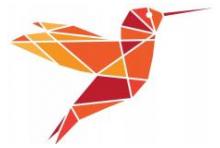The Colibrí Center for Human Rights promotes healing and change by working with families of disappeared migrants to identify and honor those who have lost their lives on the US-Mexico border. We believe that no human being should lose their life crossing a border and no family should experience the pain of searching for a loved one who has disappeared.
The Colibrí Center collects detailed missing persons reports from families through a secure online form and confidential phone ... Read More
The Colibrí Center for Human Rights promotes healing and change by working with families of disappeared migrants to identify and honor those who have lost their lives on the US-Mexico border. We believe that no human being should lose their life crossing a border and no family should experience the pain of searching for a loved one who has disappeared.
The Colibrí Center collects detailed missing persons reports from families through a secure online form and confidential phone interviews. When possible, we also collect DNA samples from families, often using a DNA mail kit program, modeled off of innovative practices pioneered by the New York City Office of the Chief Medical Examiner.
Colibrí contracts with Bode Technology to process DNA samples and to compare the results with Bode’s database of DNA from recovered human remains. Colibrí uses these DNA results plus anthropological data from missing persons reports to help forensic scientists at the Pima County Office of the Medical Examiner (PCOME) and other medical examiner offices along the border to identify remains. When a positive match is made, Colibrí staff inform families, offering support and resources.
In the course of this work, the Colibrí Center has learned much about the families of people who have disappeared, and especially about the sense of isolation that families feel.
In response, the Colibrí Center developed and guides a community of mutual support and commonality between families and friends of migrants who disappeared at the U.S.-México border, allowing families of the disappeared to know others going through the same difficult situation. We call this the Family Network.
The Colibrí Center has organized groups in cities with particularly high numbers of families who have reported missing relatives: Tucson, Phoenix, Los Angeles, San Francisco, and New York City. Colibrí is now identifying local individuals and institutions that can support these groups.
The Family Network also consists of digital spaces of connection -- closed online groups with active members from across the U.S. and Latin America, spaces that have become even more important in the era of COVID-19.
The Colibrí Center publishes a quarterly magazine written by and for families of disappeared migrants, to provide them with resources and to help ease their sense of isolation.
The Colibrí Center’s Historias y Recuerdos project allows families to provide testimonials about a loved one who has disappeared. These stories give the public a more humanized perspective of family separation and death in the borderlands and demonstrate how unique and irreplaceable each individual human being is. The Colibrí Center has arranged for members of the Family Network to testify before human rights commissions, meet with Members of Congress, and speak at public events.
Hide Full Text